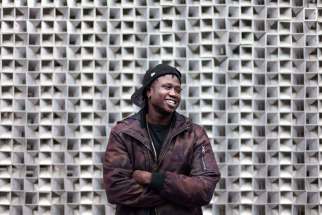Opportunity doesn’t knock, it raps South Sudan-born Winnipeg artist 10K builds career off cousin's chance meeting
Read this article for free:
or
Already have an account? Log in here »
To continue reading, please subscribe:
Monthly Digital Subscription
$1 per week for 24 weeks*
- Enjoy unlimited reading on winnipegfreepress.com
- Read the E-Edition, our digital replica newspaper
- Access News Break, our award-winning app
- Play interactive puzzles
*Billed as $4.00 plus GST every four weeks. After 24 weeks, price increases to the regular rate of $19.95 plus GST every four weeks. Offer available to new and qualified returning subscribers only. Cancel any time.
Monthly Digital Subscription
$4.99/week*
- Enjoy unlimited reading on winnipegfreepress.com
- Read the E-Edition, our digital replica newspaper
- Access News Break, our award-winning app
- Play interactive puzzles
*Billed as $19.95 plus GST every four weeks. Cancel any time.
To continue reading, please subscribe:
Add Free Press access to your Brandon Sun subscription for only an additional
$1 for the first 4 weeks*
*Your next subscription payment will increase by $1.00 and you will be charged $16.99 plus GST for four weeks. After four weeks, your payment will increase to $23.99 plus GST every four weeks.
Read unlimited articles for free today:
or
Already have an account? Log in here »
Hey there, time traveller!
This article was published 18/10/2021 (1599 days ago), so information in it may no longer be current.
In the music business, you don’t need an ‘in,’ but it certainly helps. For rapper 10K, his latest ‘in’ came in a surprising fashion — one that sounds a bit too good to be true.
Earlier this year, his cousin, who he calls Biggie, was sitting on the front porch of his West End home, cigarette lit, when he saw a man walking his dog down his sidewalk. Biggie struck up a conversation, taking the man up on his offer to pat the dog on the head.
They kept talking, and then the man said he worked at the West End Cultural Centre, just up the street. Biggie was intrigued, and as they spoke, the wheels started turning in his brain.
“He told me he had a cousin who performed hip-hop,” recalls the man, who turned out to be Jason Hooper, the cultural centre’s executive director. Biggie gassed up 10K, giving his younger cousin a glowing endorsement and telling Hooper a bit of his life story. Hooper told them to come to the centre some time, not thinking much of it.
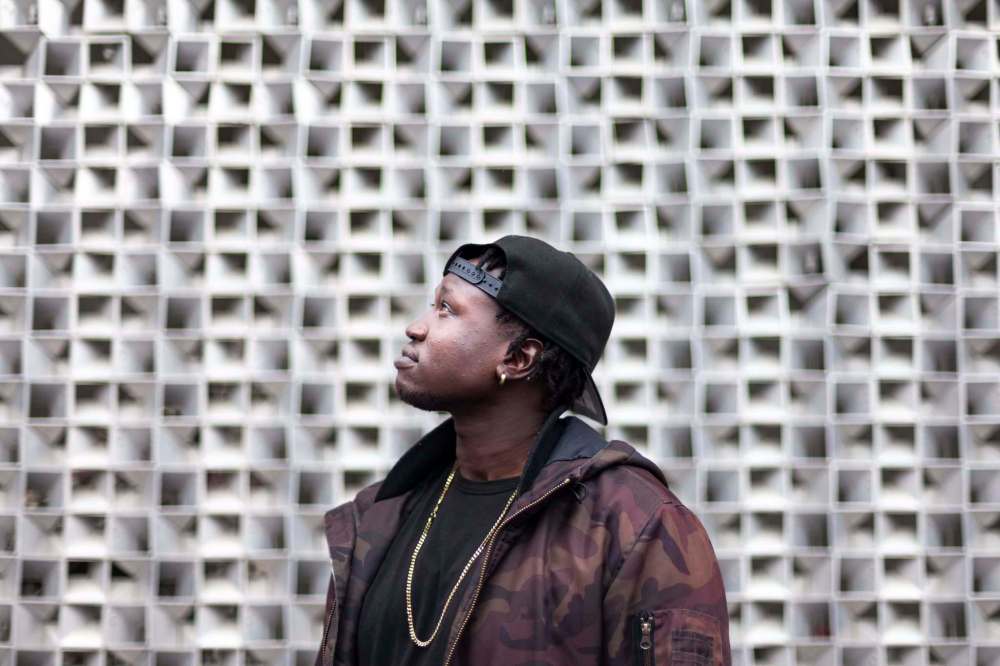
A few weeks later, the two cousins — who both came to Winnipeg from South Sudan — arrived, and with the door unlocked, walked right in.
“I played them my song, Open Doors,” says Ayii (10K) Madit, 25, over coffee at a downtown café. “I guess they liked it.”
The opening lyrics to the chorus were pertinent to say the least: “I’m taking every opportunity, I walk through open doors. I ain’t going back to when I was broke before.”
Hooper and artistic director Jorge Requena Ramos were floored, not only that Madit showed up but that his music matched the young artist’s ambition: bold, sharp, with a story only he could tell. On the spot, a concert was arranged on the West End’s outdoor stage — 10K’s first major show happening under the spotlight of one of the city’s best venues.
“I had never been there before, had no idea what I was walking into, and I had no idea what type of artist they were looking for,” says Madit, a week before his Oct. 21 show. “It definitely validated the work I’ve put in. Rapping isn’t just a hobby for me.”
“It doesn’t happen very often, something like this, but it’s exactly the kind of thing we want to be doing,” says Ramos.
“It doesn’t happen very often, something like this, but it’s exactly the kind of thing we want to be doing.” – WECC artistic director Jorge Requena Ramos
It’s an opportunity Madit doesn’t take lightly: nothing good in this life is to be taken for granted.
“It’s so easy for a person to lose everything,” he says, pulling his hoodie down over his eyes.
When Madit was five years old, he came to Winnipeg as a refugee from Juba, the capital city of what is now known as South Sudan, fleeing civil war with his mother, four brothers, and two cousins.
He lived downtown. “Langside, I think.” He moved around a lot. Learned English. Learned about racism on the playground, in stores, everywhere. Learned about a different kind of poverty than he knew in Juba. It’s an education he got and a story he built that’s not just his. “It’s the story of my people, too.”
In 2004, his mother, Yar, died. “Ovarian cancer.” He was eight. The brothers lived alone, and Ayii’s school attendance started to dwindle. When he did show up, it was often on an empty stomach and without a packed lunch. Soon, his father arrived from South Sudan, but with the situation still somewhat unstable, Ayii entered the foster care system, which provided him security and support as he dealt with ongoing racism and the pressures — poverty, drugs, gangs, addiction — swirling around him. All along, hip-hop served as a backing track, and he started writing poetry, raps of his own, and found a sanctuary in English class and on the basketball court.
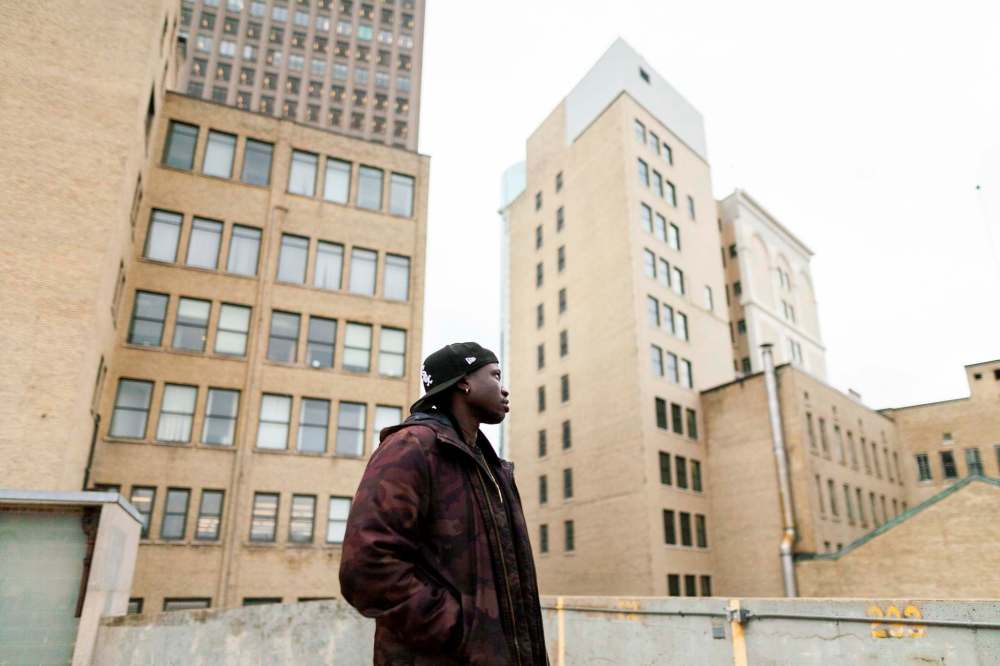
“English is the only class I really excelled in,” he said. His personal poet laureate was Tupac Shakur. Hip-hop was as important for his creative writing as the AP English class he took. Some kids at his Mennonite high school called him Ayiisus, a rap name he ran with for a stretch before changing course to 10K.
“I’d rather not play with God’s name like that,” he says.
When he aged out of the foster care system, things changed. Life, as it turns out, is a lot for a teenager to take on alone. He entered college, studying business, before that stalled, and began pouring his soul into hip-hop, churning out crudely recorded tracks that he built from top to bottom. “I started taking rap seriously when I was 18, 19, 20,” he says. It was an outlet for his frustrations, a blank slate where he could figure out his story as he told it himself.
By May 2018, he had a full EP, entitled Shade, that showed early potential, and he was booked to play a Saturday night show in Edmonton that fall, in what was to be a milestone performance for the then 22-year-old. He never took the stage.
“I’ve always had to fight. I’ve always had to protect myself, and I wasn’t thinking clearly. But now I realize what it cost me: two years of my life.” – Ayii (10K) Madit
“The show was a Saturday and I got locked up on Friday,” Madit says, swelling with regret over the missed opportunity. “I had somebody call me a monkey and the N-word, and he spat on my face. My rage went up, and I did something I should not have done.”
“I’ve always had to fight. I’ve always had to protect myself, and I wasn’t thinking clearly,” he says. “But now I realize what it cost me: two years of my life.”
Madit spent one year in Brandon and one year in Milner Ridge for assault. He spent his time writing and reading — George Orwell, a lot of James Patterson, the Lord of the Rings series, Harry Potter. “What they had, I’d read.” He worked out, learned to cut hair, and freestyled back and forth with his cellmate for hours, a godsend to have someone with him who could appreciate rap. The radio was usually tuned to country music in Brandon.
He was in when the pandemic started: masks came, the gym was closed, he put on close to 50 pounds. Visits were suspended. As hard as the pandemic was outside, think of Madit and other inmates at correctional facilities: they can’t order a Peloton. They can’t “pivot” to FaceTime. They can’t stock up on books or comfort food. They can’t go for a walk by the river and rediscover nature. Any real form of agency they could have lost had already been restricted or taken away completely. Personal space? Forget about it.
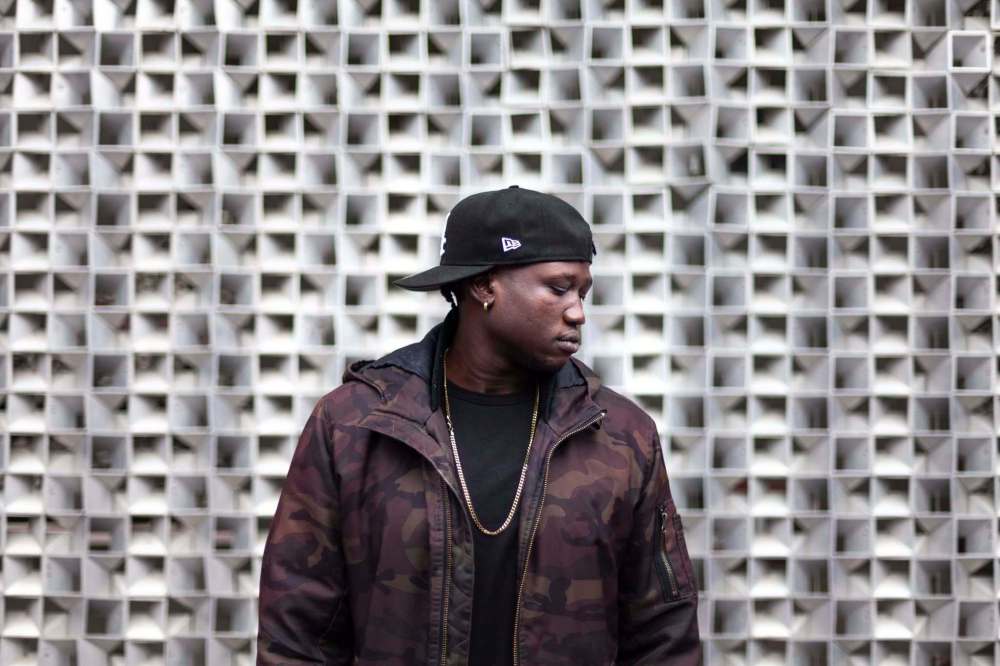
All they have is what they have, which is not a lot, and all Madit had was a light at the end of the tunnel to look forward to, all the while looking inward and planning for a different reality when he got out.
“They’re telling me that it’s been almost like a prison. And yeah, I get it, it will feel bad to get things taken away. Imagine being in prison and getting it taken away,” he says. “It’s not the same. I’m not mad though. I might feel the same way.”
In November 2020, Madit was released, as Manitoba announced new restrictions under code red, redefining which items were considered essential. “I had nothing. My clothes didn’t fit, and I couldn’t even buy pants,” he says. “That was messed up for me.
"At the same time, I felt like I had so much freedom, even with the restrictions,” he adds, his arms tattooed with his mother’s name and the borders of South Sudan and Manitoba, with the capital cities highlighted with stars. “I get it: it’s been hard out here. But when I got out of jail? I felt so free, man.”
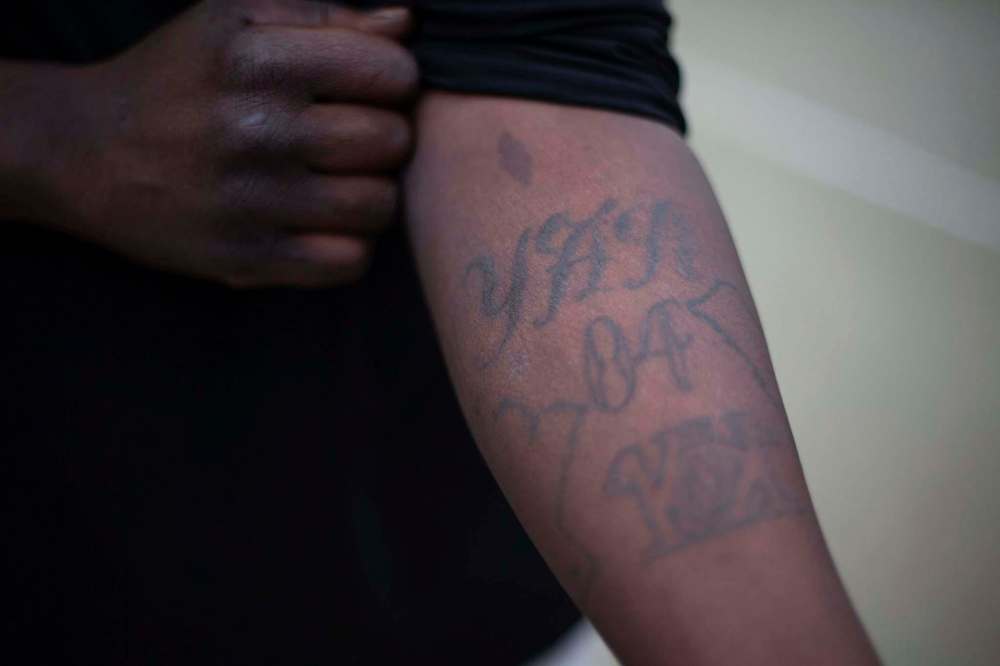
He got his own apartment, started cutting hair for friends and relatives with skills he acquired on the inside, and rededicated himself to his music, something he promised himself he’d do when he got the chance.
He teamed up with local producer TenToolz to put together Art of War, an album that deals with life’s battles head on. “It’s about how we manoeuvre through them. How we have all these things coming at us. You’re in it: you can’t escape it, you have to embrace it, and in the end, you want to come out on top.”
The album is still raw, but that plays to 10K’s advantage: it feels real, lived, and not prettied up. It’s a messy story, an ongoing saga, that the artist is editing each day, approaching every opportunity as a gift and not a given.
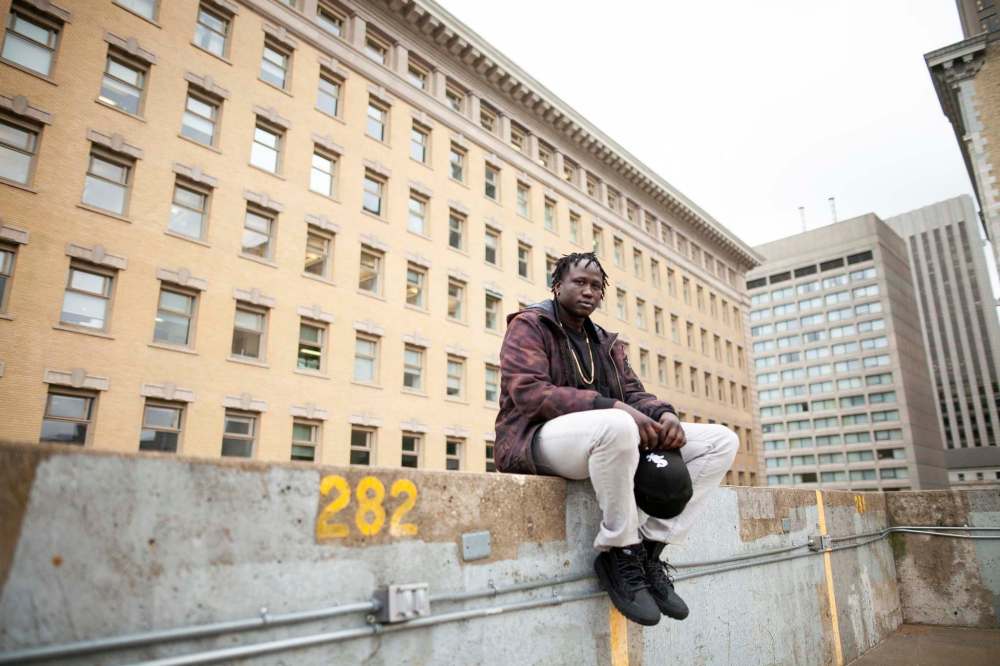
It appealed to Ramos, who called the music brave and honest, just like the man who made it. Giving him a platform to share it is part of the centre’s mandate to find local artists from diverse backgrounds, to recognize its role as gatekeeper and reframe it to give new voices from marginalized communities an opportunity to be heard.
“We’re trying to be a spring to catapult these artists to the next level,” Ramos said.
Madit is excited to take that first step, which is the culmination of a lot of personal reflection and struggle, and the proud boasting of his cousin Biggie, who never stops telling people about his cousin’s music.
“I thanked him,” Madit says. “He was one of the last people I thought would make this connection for me. I told him he’s got VIP tickets to the show.”
10K plays the WECC Patio on October 21. Doors are at 5 p.m. and the show starts at 7. Tickets are $10 and available at wecc.ca.
ben.waldman@freepress.mb.ca

Ben Waldman is a National Newspaper Award-nominated reporter on the Arts & Life desk at the Free Press. Born and raised in Winnipeg, Ben completed three internships with the Free Press while earning his degree at Ryerson University’s (now Toronto Metropolitan University’s) School of Journalism before joining the newsroom full-time in 2019. Read more about Ben.
Every piece of reporting Ben produces is reviewed by an editing team before it is posted online or published in print — part of the Free Press‘s tradition, since 1872, of producing reliable independent journalism. Read more about Free Press’s history and mandate, and learn how our newsroom operates.
Our newsroom depends on a growing audience of readers to power our journalism. If you are not a paid reader, please consider becoming a subscriber.
Our newsroom depends on its audience of readers to power our journalism. Thank you for your support.
History
Updated on Monday, October 18, 2021 9:45 PM CDT: Fixes typo in headline short.





